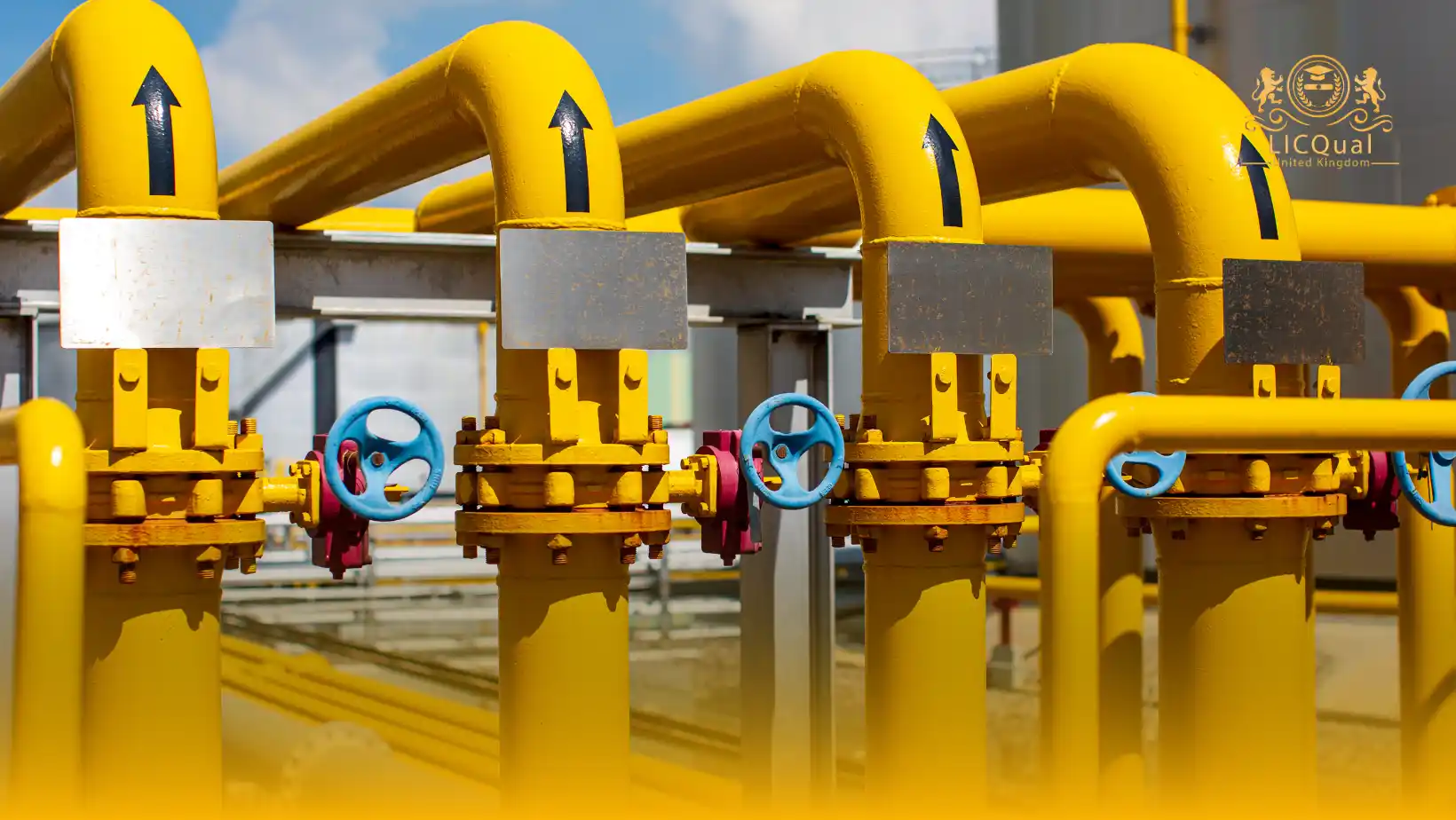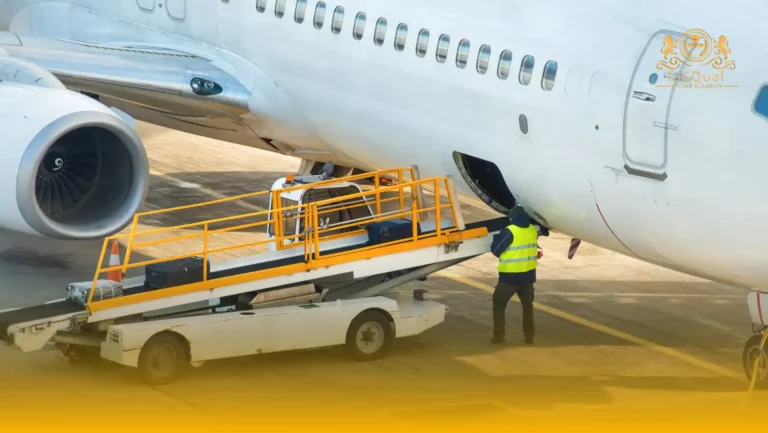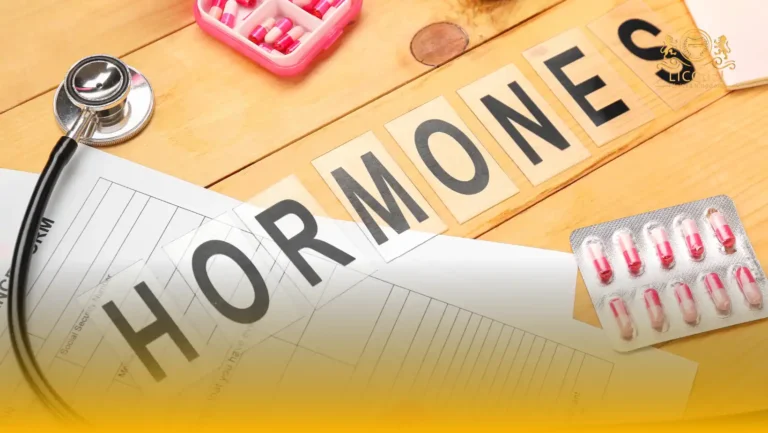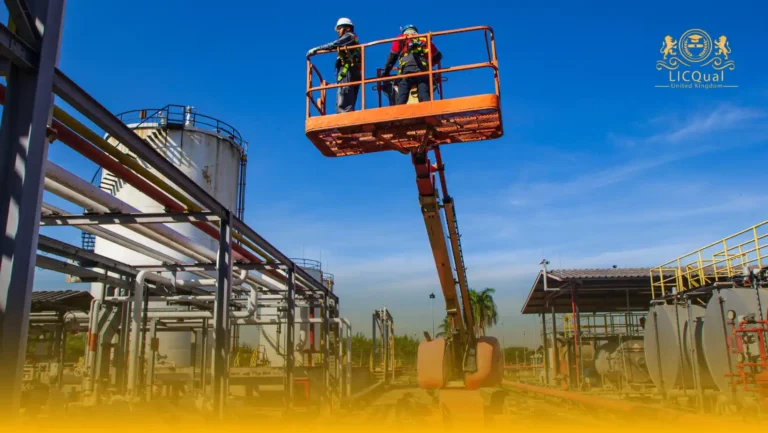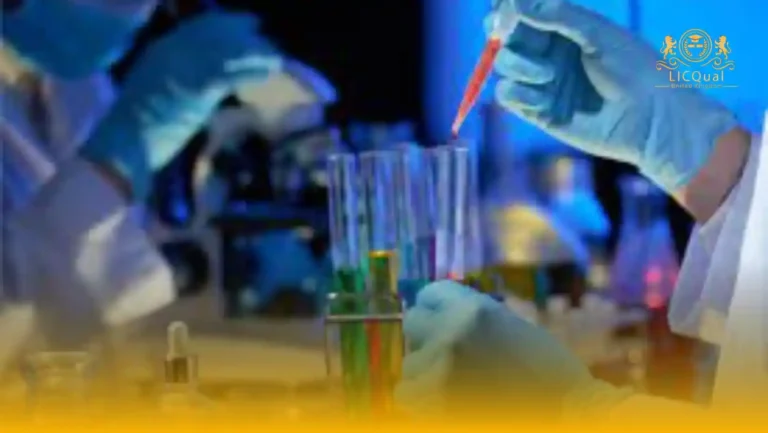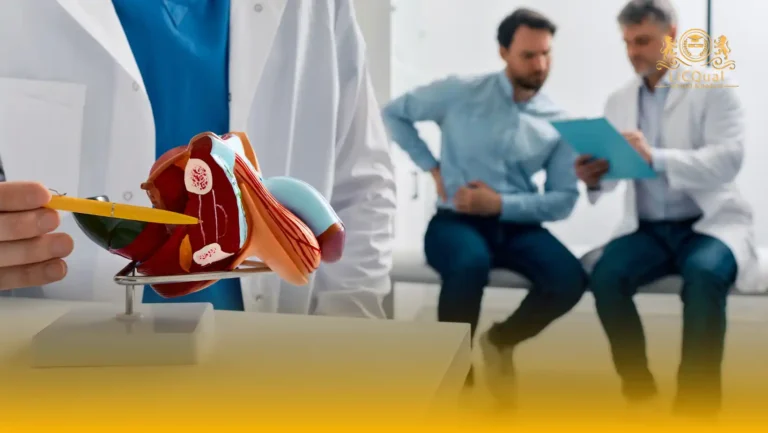Welcome to the LICQual Level 3 Certificate in Quality Control (QC) Piping, a comprehensive program designed to equip you with the essential skills and knowledge to excel in the piping industry. This course is tailored for professionals and beginners alike, offering a practical and industry-focused approach to mastering quality control in piping systems.
Whether you’re aiming to enhance your career as a quality control inspector, piping engineer, or technician, this internationally recognized qualification provides the foundation you need to ensure piping projects meet stringent standards of safety, efficiency, and compliance. With a blend of theoretical insights and hands-on techniques, this course empowers you to confidently navigate the complexities of piping quality control in sectors like oil and gas, construction, and manufacturing.
Our expertly crafted curriculum is delivered through engaging, easy-to-understand modules that prioritize real-world applications. You’ll learn from industry professionals who bring years of experience to the table, ensuring you gain practical insights into piping inspection, testing, and compliance with global standards.
By enrolling in this course, you’re taking a significant step toward a rewarding career, backed by a certification that enhances your credibility and opens doors to global opportunities. Start your journey today and become a vital asset in ensuring the integrity and performance of piping systems!
The LICQual Level 3 Certificate in Quality Control (QC) Piping is structured to provide a thorough understanding of quality control principles specific to piping systems. This course covers critical topics such as piping design standards, material selection, welding inspection, non-destructive testing (NDT), and compliance with international codes like ASME, API, and ISO.
Through a series of well-organized modules, you’ll explore the fundamentals of piping systems, quality assurance processes, and the latest industry practices to ensure projects meet regulatory and client requirements. The course emphasizes practical skills, enabling you to identify defects, perform inspections, and implement corrective actions effectively.
Designed with flexibility in mind, this program is ideal for working professionals, with options for online, in-person, or blended learning formats to suit your schedule. You’ll engage in hands-on exercises, case studies, and assessments that mirror real-world scenarios, preparing you to tackle challenges in industries such as energy, petrochemicals, and infrastructure development.
Upon successful completion, you’ll earn a globally recognized LICQual certification, validating your expertise in piping quality control and boosting your career prospects. Whether you’re looking to advance in your current role or transition into the piping industry, this course equips you with the tools to succeed in a competitive field.
Course Overview
Qualification Title
LICQual Level 3 Certificate in Quality Control (QC) Piping
Total Units
6
Total Credits
24
GLH
120
Qualification #
LICQ2200537
Qualification Specification
To enroll in the LICQual Level 3 Certificate in Quality Control (QC) Piping applicants must meet the following criteria:
|
Qualification# |
Unit Title |
Credits |
GLH |
|
|---|---|---|---|---|
|
LICQ2200537-1 |
Introduction to Piping Systems and Components |
4 |
20 |
|
|
LICQ2200537-2 |
Basics of Piping Material Selection and Specifications |
4 |
20 |
|
|
LICQ2200537-3 |
Fundamentals of Quality Control in Piping Fabrication |
4 |
20 |
|
|
LICQ2200537-4 |
Visual Inspection Techniques for Piping |
4 |
20 |
|
|
LICQ2200537-5 |
|
4 |
20 |
|
|
LICQ2200537-6 |
Health, Safety and Environmental Practices in QC Piping |
4 |
20 |
By the end of this course, applicants will be able to:
1. Introduction to Piping Systems and Components
- Describe the key components of piping systems, including pipes, fittings, valves, and supports, and their roles in industrial applications.
- Explain the basic principles of piping system design and their importance in ensuring operational efficiency and safety.
- Identify the types of piping systems used in industries such as oil and gas, petrochemicals, and construction.
- Demonstrate an understanding of how piping components contribute to the overall functionality and quality of a system.
2. Basics of Piping Material Selection and Specifications
- Identify the properties of common piping materials (e.g., carbon steel, stainless steel, alloys) and their suitability for specific applications.
- Interpret piping material specifications and standards (e.g., ASME, ASTM) to ensure compliance in quality control processes.
- Evaluate factors influencing material selection, such as corrosion resistance, pressure, temperature, and cost, in piping projects.
- Apply knowledge of material specifications to select appropriate materials for piping systems in diverse industrial settings.
3. Fundamentals of Quality Control in Piping Fabrication
- Explain the core principles of quality control in the fabrication of piping systems, including dimensional accuracy and weld integrity.
- Demonstrate the ability to follow quality control procedures to ensure piping fabrication meets industry standards and project requirements.
- Identify common defects in piping fabrication, such as misalignment or improper welding, and propose corrective measures.
- Apply quality assurance techniques to monitor and verify the fabrication process in compliance with global standards.
4. Visual Inspection Techniques for Piping
- Conduct visual inspections of piping systems to identify surface defects, such as cracks, corrosion, or improper assembly.
- Utilize appropriate tools and techniques for effective visual inspection, ensuring compliance with quality control standards.
- Document inspection findings accurately, including detailed reports on piping conditions and non-conformities.
- Evaluate the quality of welds and joints through visual inspection to ensure structural integrity and compliance with specifications.
5. Basic Non-Destructive Testing (NDT) Methods for Piping Systems
- Describe the principles and applications of basic NDT methods, such as ultrasonic testing, radiographic testing, and magnetic particle testing, for piping systems.
- Perform basic NDT procedures to detect internal and surface defects in piping components without causing damage.
- Interpret NDT results to assess the quality and integrity of piping systems in accordance with industry standards.
- Apply safety protocols and best practices when conducting NDT to ensure accurate and reliable outcomes.
6. Health, Safety, and Environmental Practices in QC Piping
- Identify health, safety, and environmental (HSE) risks associated with quality control activities in piping systems.
- Implement safe work practices and procedures to minimize hazards during piping inspection and testing processes.
- Explain the environmental impact of piping operations and apply sustainable practices to reduce waste and emissions.
- Ensure compliance with HSE regulations and industry standards to maintain a safe and environmentally responsible workplace.
This course is designed for:
- Aspiring Quality Control Inspectors who want to specialize in piping inspection and quality assurance procedures.
- Engineering Students and Graduates from mechanical, petroleum, or industrial disciplines seeking a career in piping QC.
- Welders, Fabricators, and Pipe Fitters aiming to move into inspection and supervisory roles in quality control.
- Construction Site Technicians who want to enhance their technical understanding of piping quality standards and documentation.
- Mechanical Supervisors and Foremen looking to upgrade their knowledge in piping materials, NDT methods, and inspection protocols.
- Professionals Working in Oil & Gas, Petrochemical, or Power Plants who want formal certification in piping QC processes.
- Career Changers seeking to enter the high-demand field of industrial quality control and assurance.
- Project Coordinators and Site Engineers who want to improve their ability to monitor piping activities with compliance to international codes.
- Technical Assistants and Document Controllers in fabrication yards or construction firms who want a deeper understanding of QC documentation.
- Anyone Seeking International Job Opportunities in piping inspection, testing, and quality compliance across global industrial projects.
Assessment and Verification
All units within this qualification are subject to internal assessment by the approved centre and external verification by LICQual. The qualification follows a criterion-referenced assessment approach, ensuring that learners meet all specified learning outcomes.
To achieve a ‘Pass’ in any unit, learners must provide valid, sufficient, and authentic evidence demonstrating their attainment of all learning outcomes and compliance with the prescribed assessment criteria. The Assessor is responsible for evaluating the evidence and determining whether the learner has successfully met the required standards.
Assessors must maintain a clear and comprehensive audit trail, documenting the basis for their assessment decisions to ensure transparency, consistency, and compliance with quality assurance requirements.

